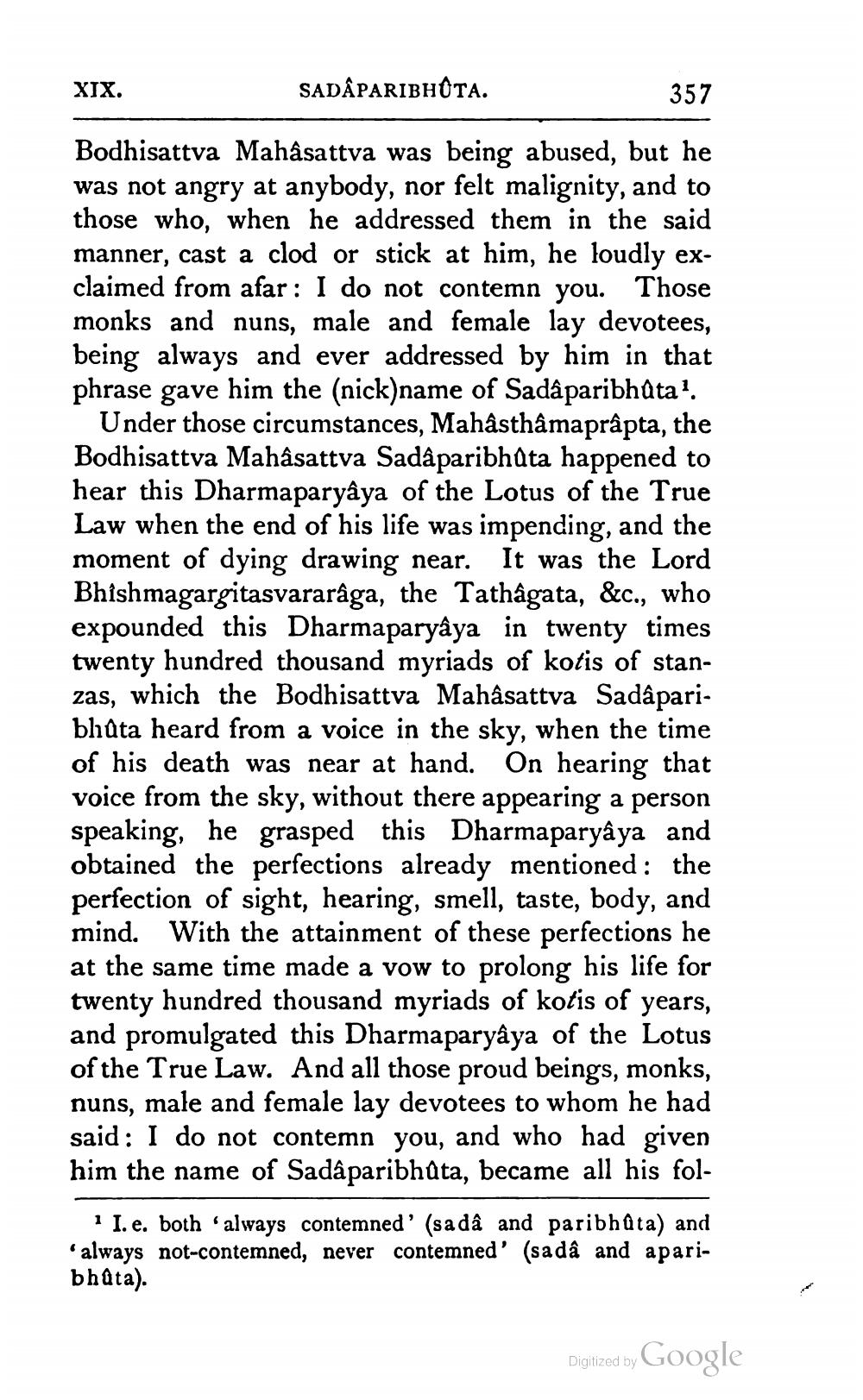________________
XIX.
SADÂPARIBHOTA.
357
Bodhisattva Mahâsattva was being abused, but he was not angry at anybody, nor felt malignity, and to those who, when he addressed them in the said manner, cast a clod or stick at him, he loudly exclaimed from afar: I do not contemn you. Those monks and nuns, male and female lay devotees, being always and ever addressed by him in that phrase gave him the (nick)name of Sadâparibhàta.
Under those circumstances, Mahâsthâmaprâpta, the Bodhisattva Mahâsattva Sadâparibhata happened to hear this Dharmaparyâya of the Lotus of the True Law when the end of his life was impending, and the moment of dying drawing near. It was the Lord Bhishmagargitasvararâga, the Tathagata, &c., who expounded this Dharmaparyâya in twenty times twenty hundred thousand myriads of kotis of stanzas, which the Bodhisattva Mahâsattva Sadâparibhata heard from a voice in the sky, when the time of his death was near at hand. On hearing that voice from the sky, without there appearing a person speaking, he grasped this Dharmaparyâya and obtained the perfections already mentioned: the perfection of sight, hearing, smell, taste, body, and mind. With the attainment of these perfections he at the same time made a vow to prolong his life for twenty hundred thousand myriads of kotis of years, and promulgated this Dharmaparyâya of the Lotus of the True Law. And all those proud beings, monks, nuns, male and female lay devotees to whom he had said: I do not contemn you, and who had given him the name of Sadâparibhūta, became all his fol
* I.e. both “always contemned' (sa dâ and paribhůta) and "always not-contemned, never contemned' (sadâ and aparibh@ta).
Digitized by Google




